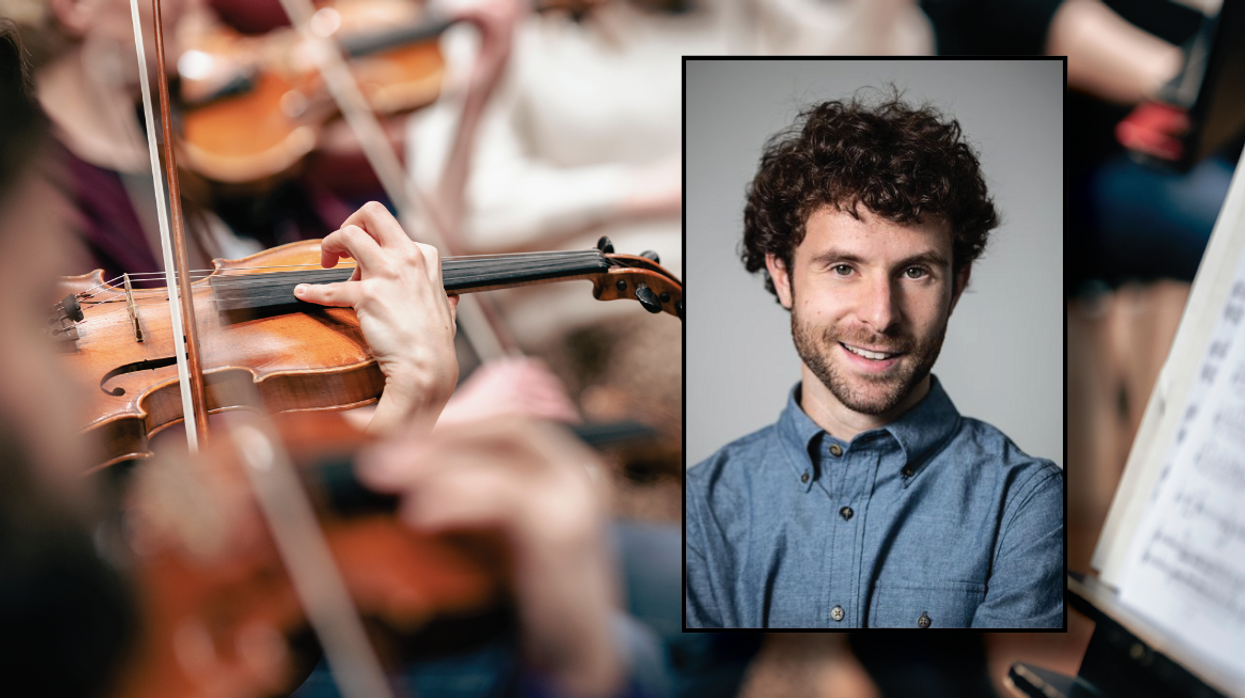World-Premiere Commission by Exciting Young Talent Showcases Houston Student Musicians

Matthew Aucoin
THIS SATURDAY, APRIL 20, DACAMERA presents a world-premiere commission by a dynamic young talent.
At just 33, Matthew Aucoin is already a sought-after composer, writer and conductor. His Music for New Bodies is an ambitious music and theater piece scored for the unusual combination of five vocal soloists and an 18-instrument ensemble, with texts by Pulitzer Prize-winning poet Jorie Graham. Co-presented by DACAMERA and the Shepherd School of Music at Rice University, and directed by the inimitable Peter Sellars, Music for New Bodies is an oratorio for our troubled time. It’s inspired by what Aucoin describes as Graham’s “acute awareness of our species’ abandonment of our duties both to the planet we live on and to ourselves.” For the premiere, Aucoin, a former MacArthur Fellow, will conduct an instrumental ensemble of Shepherd School of Music students and DACAMERA Young Artists.
“Studying this on your own is like seeing one side of a crystal,” says New York-born, Cuban-American soprano Meryl Dominguez, 31, who will perform alongside Kathryn Lewek, soprano; Rachael Wilson, mezzo-soprano; Brenton Ryan, tenor; and Cory McGee, bass-baritone. “There aren’t really solos in the same way you would think of an aria versus an ensemble,” says Dominguez. “We are all acting as one character in some ways, but the different facets of a personality show up in the different voices and specific lines.” Now in her final year as a HGO Butler Studio artist, Dominguez has always been drawn to music with a “complex emotional life,” and describes her voice as having a kind of “transparence” in terms of emotion. “If I get overwhelmed onstage, you can hear it,” says Dominguez. “I like and am challenged by that aspect of my voice.”

Meryl Dominguez (photo by Jiyang Chen)

Peter Sellars (photo by Ruth Walz)
Tasked to make sense out of all of this transparency and complexity is Sellars, renowned for his irreverent yet reverent staging of opera warhorses, Handel oratorios, and Shakespeare tragedies — and who famously directed the 1987 HGO premiere of John Adams and Alice Goodman’s Nixon in China. “Most of what I do is never anything you can see,” laughs Sellars, whose directorial vision for Music for New Bodies is eminently practical and intensely collaborative. “The story is being told and the imagery is being created by everybody in the ensemble. Each of the groups (the singers, string players, wind players, and percussionists) have their own kind of amazing metabolism working, and you feel each group moving as a unit and as part of a larger picture.”
Throughout Music for New Bodies, Aucoin’s music seems to grow like a forest out of dark soil; the complexity of the composition intensifies and recedes, mirroring the emotional journey of the characters, some human, some not, leading to simple, soaring lines and moments where the voices disappear completely. “When you’re talking about experiences that are on the edge of human consciousness, there are places where words no longer function, and music takes over,” says Sellars when describing these moments of transfiguration. Ocean spirits, toxic yet lifesaving chemicals, and the Earth itself are all given a “voice” by the quintet and instruments.
“If we don’t make new things, music won’t continue to grow and develop,” says Dominguez. It’s a sentiment echoed by Sellars, whose career-long search for new modes of expression speaks to humankind’s potential for change, even when challenges such as the planet’s warming oceans can feel insurmountable.
“The real tradition, is that it has to be new,” says Sellars, laughing again. “And that’s what the arts are here for. To just say let’s move one, let’s imagine, and let’s reimagine.”
- A Young Jazz Prodigy Is Blazing His Own Musical Path Utilizing an Unexpected Instrument ›
- ‘Avalanche’ of Bold Contemporary Music to Be Featured at MATCH Concert Friday ›
- Nicky Sohn, Kinetic Ensemble Tell 'Her Story' on Behalf of Women's Home Grads in Honor of Women's History Month ›
- 'Tis the Season for Beethoven Piano Sonatas and Holiday Jazz from DACAMERA ›
- Next-Gen Classical Musician Krempasky Stars on Album Composed by Her Fave Prof ›
- Jason Moran Jazzes Up His Repertoire with New Art Show at Houston Gallery ›
- Houston-Born Violist Jessica Bodner Comes Home for Performance with The Parker Quartet ›
- This Weekend: Joshua Redman Group and Houston-Native Paul Cornish Go On a Jazzy, ‘Improvisational Adventure’ ›
- Making ‘Room for Everybody,’ Gretchen Parlato Brings Her Multi-Genre Brand of Jazz to Houston ›
- Shakespeare Festival Celebrates 50 Years with Must-See Classics at Miller Outdoor - Houston CityBook ›

